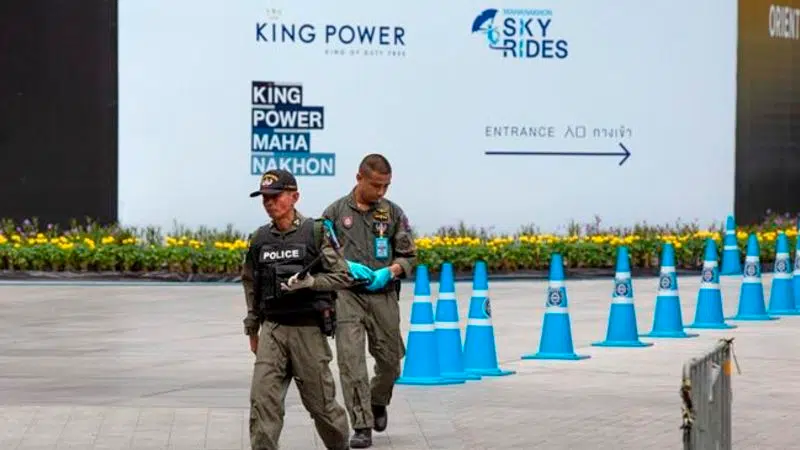
Thai leader orders investigation of Bangkok blasts; 4 hurt
BANGKOK — Thai Prime Minister Prayuth Chan-o-cha on Friday ordered an investigation into several small bombings in Bangkok that took place as Thailand was hosting a high-level meeting attended by U.S. Secretary of State Mike Pompeo and his counterparts from China and several Asia-Pacific countries.
Explosive devices were found or detonated at least six locations, including two at stations of the capital’s elevated Skytrain rail system. Other sites included a government complex on the outskirts of the city, and near the offices of a company associated with supporters of Prayuth’s new government, police said.
The city’s Erawan Emergency Radio network said it received reports that four people required hospital treatment for minor injuries.
“A group of ill-intended people have recently incited violence while the government is propelling the country forward,” Prayuth’s office said in a statement, urging the public not to panic and co-operate with authorities in investigating the blasts.


